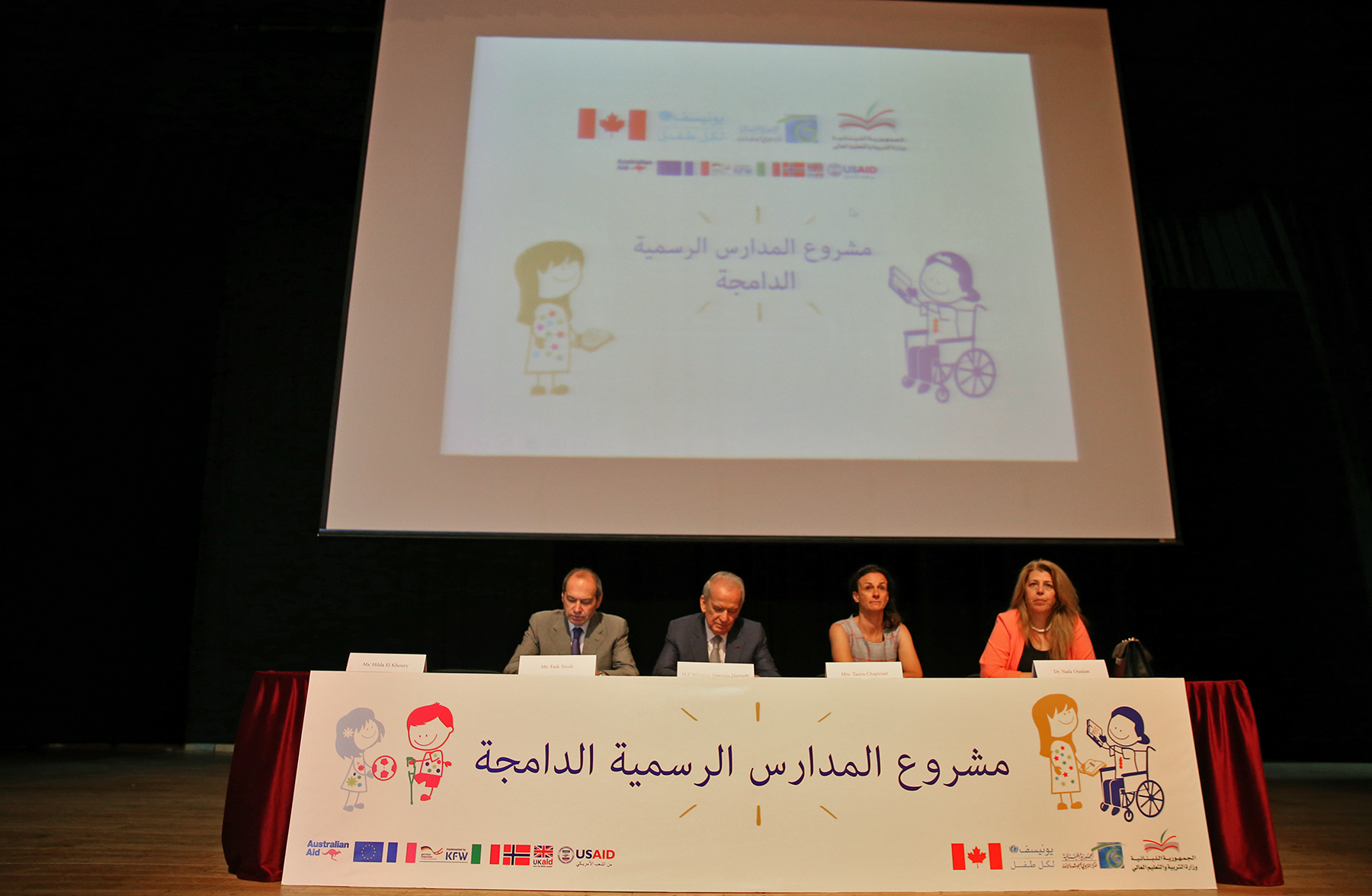Beirut, 22 May 2018 – To promote the development of inclusive education in Lebanon and ensure quality education for all children, including children with disabilities and learning difficulties, the Ministry of Education and Higher Education, with the support of UNICEF launched its inclusive education programme, a pilot targeting 30 public schools in all governorates of Lebanon.
The event was headed by the Minister of Education and Higher Education, Marwan Hamade and UNICEF, was attended by education sector representatives, partners and key donors including representatives from the Delegation of the European Union, the embassies of Australia, Canada, France, Germany, Italy, Norway, the United Kingdom and the United States of America.
The pilot programme, implemented with the financial support of the Canadian Government, aims to increase the enrollment number of children with disabilities in the public schools. The project will build the capacity of the public-school system and equip teachers, administrators and other education personnel with the essential knowledge and skills to foster inclusive education environments. While generating evidence based data, the project will also increase the awareness of families, caregivers, decision makers and community leaders about inclusive education rights, opportunities, and the importance of school-family collaboration.
“Like all children, children with disabilities need quality education to develop their skills and realize their dreams, and they have much to contribute to society” said minister Hamade. “In this type of supportive educational environment in which the principles of inclusive education are adopted, each child feels safe and develops a sense of belonging to the school community”.
Inclusive education addresses and responds to the diversity of needs of all learners through increasing participation in learning, and reducing exclusion within and from education. It involves changes and modifications in content, approaches, structures and strategies. Inclusive education has academic, social and emotional benefits not only for children with special needs but also for all children. It leads to more cohesive societies that respect diversity and difference. It also contributes to better economic outcomes as children come productive citizens.
“All children have a right to education. This statement has been pronounced so many times that we often forget the depth of its meaning,” said Tanya Chapuisat, Representative of UNICEF Lebanon. “This project reflects our joint commitment to increase access to education for all children, with and without disabilities. We need to give all children the same opportunities to succeed and thrive in schools and in their communities”.
The ministry of Education and Higher Education deployed with the support of the Department of Guidance and Counseling within the General Directorate of Education (DOPS), special educators to each of the selected schools to provide methodological support to teachers on curriculum adjustment, teaching techniques and strategies, and support children with special education needs and learning difficulties. Five mobile teams of three paraprofessionals – psychologist, psychomotor therapist, speech therapist- will support schools to provide services to children with disapbilities.
The Center for Educational Research and Development (CERD) is training the teachers and school personnel on inclusive education.
About UNICEF UNICEF promotes the rights and wellbeing of every child, in everything we do. Together with our partners, we work in 190 countries and territories to translate that commitment into practical action, focusing special effort on reaching the most vulnerable and excluded children, to the benefit of all children, everywhere. For more information about UNICEF and its work visit: www.unicef.org Follow us on Twitter and Facebook

